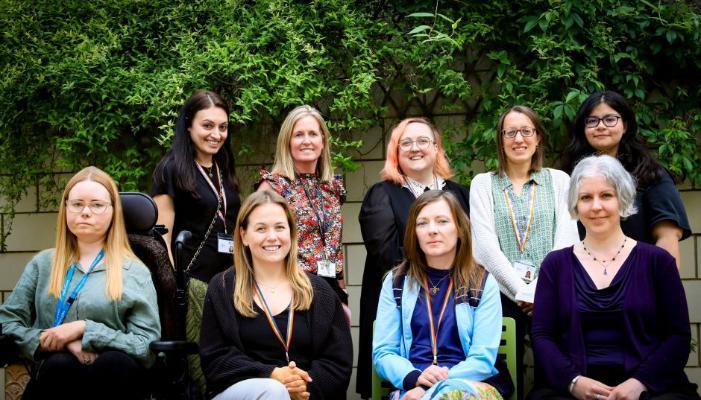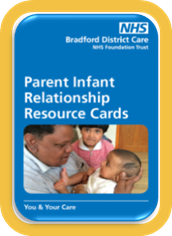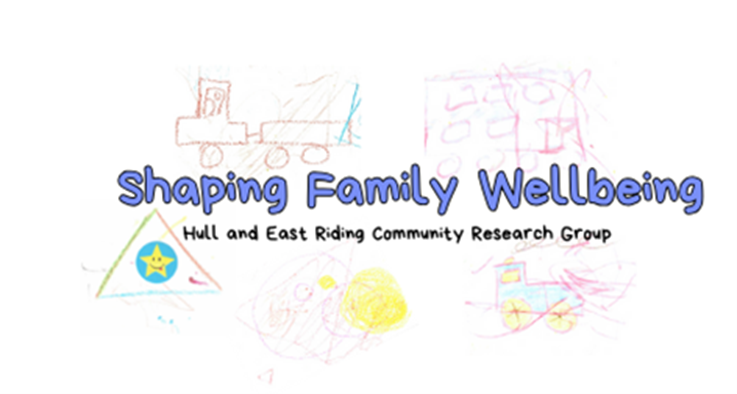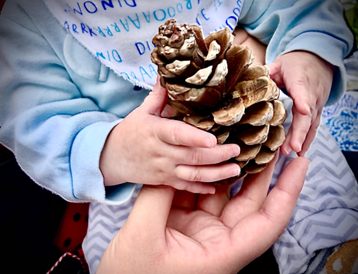Family Wellbeing Team

The Family Wellbeing Team is led by Dr Sarah Blower and is part of the Public Health and Society Research Group.
Research Overview
Our research focuses on developing and evaluating interventions and measures designed to reduce inequalities in the health, development and wellbeing of babies, children and young people, and their families. We work collaboratively with parents, carers and professionals in health, social care and the community.
Family Wellbeing Team Members
- Dr Sarah Blower
- Dr Kate Morton
- Dr Kate Mooney
- Dr Simona Manni
- Laura Barrett
- Lois Armour
- Sarah Compton
- Kelly Hollingsworth
- Andrew Haynes
- Veronica Gillies
- Gareth Palliser (Associate)
- Dr Rachael Cheung (Associate)
- Emeritus Professor Tracey Bywater
Projects
STRategies for the Identification, enrolment, attendance and retention of families into parenting interVentions in Early life (STRIVE)
STRIVE aims to improve access to parenting interventions for disadvantaged and ethnically diverse parents by sharing and testing our learning from over 10 years (2014-2024) working with Better Start Bradford in other areas across England.
Our main objectives:
Aim: To build and mobilise an evidence base for strategies that effectively improve engagement (identification and referral, enrolment, attendance, retention) of disadvantaged families in parenting interventions, in order to reduce child health inequalities. The project will be delivered across two and half years, with three phases and seven work packages (WP). The objectives are:
Phase one
1. Develop a framework of engagement strategies used in Better Start Bradford and explore perspectives on impact and acceptability (WP1)
2. Evaluate the impact of strategies on engagement outcomes (WP2)
3. Evaluate tools to identify parents (WP3)
4. Analyse costs and consequences of all strategies (WP4).
Phase two
5. Translate WP1-4 findings into co-produced recommendations and prioritise engagement strategies for further evaluation (WP5).
Phase three
6. Explore effectiveness, implementation and cost consequences of up to 3 strategies in sites across England (WP6).
All phases
7. Maximise the impact of STRIVE via ongoing, systematic process of dissemination and active knowledge mobilisation (WP7).
If you have any questions about this project, please contact the project team at strive-project@york.ac.uk, or reach out to:
- Dr Sarah Blower (sarah.blower@york.ac.uk)
- Laura Barrett (laura.barrett@york.ac.uk)
For more information see the STRIVE project page.
Supporting Parent-Infant Relationships Equitably (SPIRE)
Through our project SPIRE, we want to evaluate the guidance and conversation prompts to explore whether they are being used, and if so, the impact they are having on families and services.
Our main objectives:
Aim: to evaluate acceptability, feasibility, and impact of the new parent-infant relationship prompts, to inform practice and policy.
The six key objectives are to:
- Identify barriers and enablers to adopting the prompts
- Describe how prompts are implemented within existing systems of support
- Understand practitioner and parent experiences of the prompts
- Understand how inequalities might influence implementation
- Evaluate the impact of the prompts on referrals to relevant services
- Develop co-produced guidance for equitable implementation of the prompts
If you have any questions about this project please reach out to:
- Dr Sarah Blower, Project Lead - sarah.blower@york.ac.uk
- Dr Kate Mooney, Research Associate - kate.mooney@york.ac.uk
- Dr Kate Morton, Research Associate - kate.morton@york.ac.uk
For more information see SPIRE project page
BiBBS ACHIEVE: Addressing Childhood Inequalities through Evidence-Based Early Interventions using Born in Bradford’s Better Start (BiBBS) birth cohort
The UK spends billions on a system of preventative support for families, but entrenched inequalities suggest that this system is failing disadvantaged children. We have a unique opportunity to utilise Born in Bradford’s Better Start (BiBBS), an innovative interventional birth cohort designed to evaluate the effectiveness of multiple preventative interventions. BiBBS includes >5,500 ethnically diverse and deprived children and families, recruited throughout recent systemic shocks (2016-2024).
BiBBS ACHIEVE will enhance this cohort with additional data collection in middle-childhood (aged 7-8) and the use of creative, innovative methodologies to:
- Generate significant advances in understanding of the mechanisms by which these contemporary experiences impact the health, wellbeing, and educational development of socially disadvantaged children.
- Push the boundaries of understanding of how existing interventions can be adapted and combined to effectively mitigate the impact of these exposures and reduce inequalities in child outcomes.
The study is led by Dr Josie Dickerson at the Bradford Institute for Health Research.
For more information, see the BiBBS ACHIEVE project page
Equity in growing a family: The impact of inequalities in NHS funding for LGBTQ+ couples fertility treatment
This research aims to understand the impacts of funding inequalities for LGBTQ+ couples to grow their family via fertility treatment.
The issue was first raised by two members of our Shaping Family Wellbeing community research group, who have since joined a lived experience group with four other people from around the UK to guide this research project. We have conducted a survey and interviews to explore the impact of the lack of clear information and the inequities in NHS funding, and are working with LGBT Mummies to use the findings to support their Fertility Justice campaign.
We have been funded by the National Institute for Health and Care Research Yorkshire and Humber ARC (NIHR200166) and the University of York SPARKS initiative.
Me and My Baby (MAM-B Questionnaire): Developing and implementing a questionnaire about parents' relationships with their baby
Our team worked with parents, clinical psychologists and health visitors to create the Me and My Baby (MaMB) questionnaire, which contains 11 short questions for parents about their relationship with their baby. The MaMB questionnaire is short, easy to use in practice and helps open up conversations when a parent might be struggling to bond with their baby. This allows practitioners to signpost parents to support when needed. The MaMB questionnaire has been tested in Doncaster and Bradford, and found to work well for parents and practitioners.
The MaMB is now being used by the specialist perinatal mental health service across Hull and the Humber region, and is included in the Parent Infant Foundation resource library. It is freely available to download from: https://www.york.ac.uk/healthsciences/research/public-health/projects/mamb/
Our next steps are to develop a training package to support equitable use of the MaMB questionnaire, including with families from different cultures, parents whose first language is not English, and parents experiencing perinatal mental health issues. We will also collect data to further evaluate the psychometric properties of the questionnaire.
If you have any questions about this project please reach out to:
- Dr Sarah Blower, Project Lead - Sarah.Blower@york.ac.uk
- Dr Kate Mooney, Research Associate - kate.mooney@york.ac.uk
Ready to Relate: Understanding the use and impact of visual interactive cards to promote parent-infant relationships

Ready to Relate is a set of photo cards developed at the Bradford District Care Trust. Practitioners can use the cards with parents to build their understanding that babies are born ready to relate.
The cards demonstrate sensitive care-giving skills and facilitate conversations between practitioners and parents. The resource is also available for parents to use as a self-directed digital version.
Ready to Relate is being used across more than 60 services in the UK and use of the cards is a key performance indicator in Bradford.
Our research team comprises researchers from the Universities of York and Huddersfield. We are interviewing practitioners and parents to explore how easy the Ready to Relate cards are to use in practice, how practitioners are adapting Ready to Relate to use in different settings, and the benefits or downsides perceived by parents. We are partnering with Bradford District Care Trust to use this learning to develop and refine a theory of change for Ready to Relate. This learning will also help inform a wider evaluation of the Ready to Relate intervention.
If you have any questions about this project please see the R2R project website or reach out to:-
- Dr Sarah Blower, Project Lead - sarah.blower@york.ac.uk
- Dr Zoe Darwin (University of Huddersfield), Collaborator - Z.Darwin@hud.ac.uk
Shaping Family Wellbeing: Hull and East Riding Community Research Group

The Shaping Family Wellbeing group includes 2 co-chairs and 21 parents or caregivers in Hull who care for a child aged 0, 1 or 2.
We work together to design and run research and development projects, as well as identifying new priorities for families.
At our first meet-up we discussed experiences of looking after their family’s health, and the following visual summary of the discussion was produced:- Visual Summary of 1st Family Advisory Board Meeting (PDF ![]() , 2,521kb)
, 2,521kb)
A huge thank you to all the parents and caregivers who have joined the Shaping Family Wellbeing group, and to the following organisations for helping to get the word out there about this opportunity:
- Hull Family Hubs
- Hull & East Riding LGBTQI+ Forum
- Phoenix Wellbeing
- Healthwatch Hull
- BME Parenting Hull
- PMH support groups
- House of Light
- Healthy lifestyles team
- Home-Start Hull
If you might be interested in working with the Shaping Family Wellbeing group on an existing project or an idea for a grant, please get in touch with Dr Kate Morton: kate.morton@york.ac.uk
GP drop-in clinics at Family Hubs

Our team are supporting Hull City Council to evaluate a new GP drop-in clinic at a Family Hub.
The clinic is available to all families attending certain play sessions at the Family Hub, and offers a flexible, weekly drop-in clinic for families to seek holistic support for any health concerns. The drop-in clinic is with the same GP each week and all consultations are in-person with no appointments needed.
We have engaged in capacity building to advise a local NHS Graduate Management trainee on collecting and analysing qualitative data, and knowledge exchange with the GP and public health consultant to support the collection of meaningful evidence about the service which can potentially be used to justify further funding. This has enabled the project team to conduct a service evaluation involving interviews with parents and practitioners to explore experiences of the drop-in clinic, questionnaires to measure trust, and demographic and clinical data to help understand who is using the service and how. Our next steps are to explore barriers and facilitators to scaling this approach and feasibility of an effectiveness evaluation.
The below PDF is the 'Service Evaluation of a GP Drop In Clinic at a Family Hub':-
Rainbow GP 23-24 (PDF ![]() , 470kb)
, 470kb)
If you have any questions about this project please reach out to the project leads:-
- Dr Kate Morton - Kate.Morton@york.ac.uk
- Dr Sarah Blower - Sarah.Blower@york.ac.uk
Describing and Evaluating the Tree Babies Intervention
We are working with Phoenix Wellbeing and Hull Museums to understand how parenting groups can use green spaces and nature to promote family wellbeing and positive parent-child interactions for families of very young children.
The group is called Tree Babies and they have been commissioned by Hull Museums to deliver sessions in the green spaces/gardens on museum grounds.
We are conducting a literature review exploring the use of green space interventions to improve parent-child relationships and parent wellbeing, and use observations and interviews to better understand parents'/carers' experiences of the groups and the impact they have. We will work with the group organisers and Hull Museums to develop a theory of change to understand how the group is working.
We are setting up a stakeholder group to support this work, including parents, museum staff and specialists in green space interventions and museums - please contact us if you would be interested in joining our group.
If you have any questions about this project please reach out to:
Dr Kate Morton - kate.morton@york.ac.uk or Dr Sarah Blower, project leads - sarah.blower@york.ac.uk

Exploring the Psychometric Properties of Parent and Child Outcome Measures
We are working on several projects that will evaluate the psychometric properties and potential utility of measures administered during the early years to both parents and children.
We are looking at standardised measures which were collected during the Enhancing Social and Emotional Wellbeing in the Early Years (E-SEE) randomised trial. These measures are the Parenting Sense of Competence Scale (PSOC), a measure of a parent’s self efficacy in parenting, and the Strengths and Difficulties Questionnaire (SDQ), a measure of a child’s socioemotional difficulties.
We are also looking at measures which are routinely collected by practitioners during the early years of a child’s life, and are recorded in their health and educational records. These studies will use data from the Born in Bradford cohort and the Born in Bradford’s Better Start (BiBBS) cohort. These include the Early Years Foundation Stage Profile (EYFSP) completed by teachers when children are aged five, and the Ages and Stages Questionnaire (ASQ) administered by health visitors to parents of 2-2 ½ year old children.
This work builds on our previous published systematic reviews of the psychometric properties of common child and parents outcome measures.
If you have any questions about these projects please reach out to:
Dr Kate Mooney - kate.mooney@york.ac.uk or Dr Sarah Blower - sarah.blower@york.ac.uk
Psychometric Properties of Child (0-5 Years) Outcome Measures as used in Randomized Controlled Trials of Parent Programs: a Systematic Review Gridley, N., Blower, S. L., Dunn, A. C., Bywater, T. J., Whittaker, K. & Bryant, M. J., 15 Sept 2019, In: Clinical Child and Family Psychology Review. 22, 3, p. 388-405 18 p. https://eprints.whiterose.ac.uk/142330/8/Gridley2019_Article_PsychometricPropertiesOfParent_1_.pdf
Psychometric Properties of Parent-Child (0-5 years) Interaction Outcome Measures as used in Randomized Controlled Trials of Parent Programs: A Systematic Review Gridley, N., Blower, S. L., Dunn, A. C., Bywater, T. J., Whittaker, K. & Bryant, M. J., 15 Jun 2019, In: Clinical Child and Family Psychology Review. 22, 3, p. 253-271 19 p. https://eprints.whiterose.ac.uk/142329/8/Gridley2019_Article_PsychometricPropertiesOfParent.pdf
Psychometric Properties of Parent Outcome Measures used in RCTs of Antenatal and Early Years Parent Programs: A Systematic Review Blower, S. L., Gridley, N., Dunn, A. C., Bywater, T. J., Hindson, Z. & Bryant, M. J., Sept 2019, In: Clinical Child and Family Psychology Review. 22, 3, p. 367-387 21 p. https://eprints.whiterose.ac.uk/142331/8/Blower2019_Article_PsychometricPropertiesOfParent.pdf
Better Start Bradford Innovation Hub: effectiveness and implementation evaluations
There is strong evidence that the first few years of life build the foundations for future health and wellbeing. Taking a preventative approach together with systems changes in local agencies can improve the life chances of babies and children. However, these interventions have yet to be tested at scale. The Better Start Bradford Innovation Hub will evaluate how 22 interventions aimed at pregnant women and children in three areas of Bradford impact on children's health and development.
A partnership between Better Start Bradford and Born in Bradford, the Innovation Hub unites leading academics from the University of York and Bradford Institute of Health Research to provide a centre for evaluation of the Better Start Bradford projects. It also hosts the world’s first experimental birth cohort - Born in Bradford's Better Start (BiBBS).
Established in 2016, BiBBS recruits pregnant mums and their new babies living in the Better Start Bradford area and has enrolled more than 5000 families in total. BiBBS families share data with us so we can understand the impact of the Better Start Bradford programme and support planning of better services for families in the region.
We have planned two quasi-experimental studies which will use propensity score matching to establish whether some of the services delivered by Better Start Bradford are effective. Our evaluation of Baby Steps, a parenting programme that is delivered antenatally and postnatally, will establish if it is effective for improving maternal sensitivity and maternal mental health. Our evaluation of Incredible Years, a parenting education programme delivered to parents of 1-3-year-olds, will establish if it is effective for improving children's development measured on the Early Years Foundation Stage Profiles.
For more information visit:
If you have any questions about this project please reach out to:
Dr Sarah Blower, Enhanced Evaluation Lead for BSBIH - sarah.blower@york.ac.uk
Best Start - NIHR Applied Research Collaboration Yorkshire and Humber
Best Start is one of five topics within the Early Life and Prevention theme of the NIHR Applied Research Collaboration Yorkshire and Humber.
The Best Start topic is led by Dr Sarah Blower and aims to improve the mental and physical health of parents and infants from conception onwards. This includes developing and evaluating interventions, co-producing and testing measures, and promoting equitable access to support for families.
Many of our projects support these Best Start objectives. You can read more about the ARC Best Start topic on the ARC’s website.
The Best Start topic is supported by our amazing team of experts in family well-being, the Best Start Steering Group. We meet quarterly to discuss Best Start projects, share ideas and advice, and plan further research.
Membership of the Best Start Steering Group is open to anyone working with expectant parents and/or parents, carers and families of babies and young children within the YH ARC region, including researchers, PhD students, practitioners, and professionals.
The group currently has over 40 members and is chaired by Best Start topic lead, Dr Sarah Blower (Chartered Psychologist and Associate Professor of Child Development and Family Wellbeing at the University of York).
Best Start Steering Group Terms of Reference
For more information about the Best Start topic or to find out about joining the Best Start Steering Group, please reach out to:
Sarah Blower, topic lead - sarah.blower@york.ac.uk
